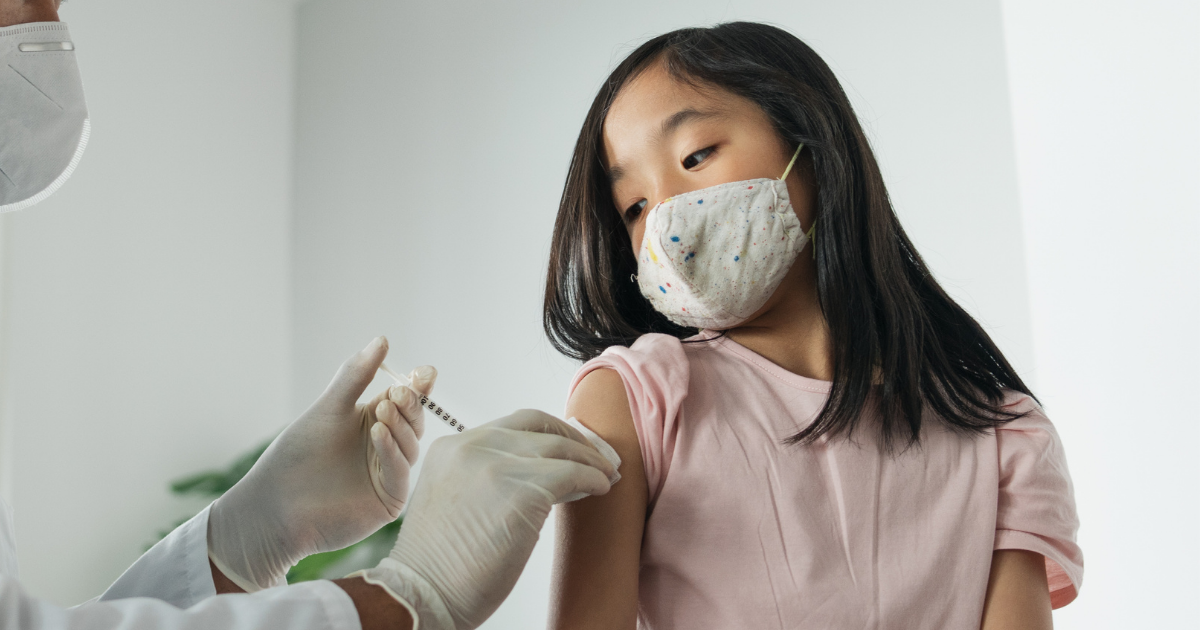Another milestone has been reached to help curtail the pandemic that has plagued the world for two years. The Centers for Disease Control and Prevention (CDC) has endorsed the U.S. Food and Drug Administration’s (FDA) approval for children ages 5 through 11 to receive the Pfizer-BioNTech vaccine.
“The FDA doesn’t take these rulings lightly,” said Anastasia Gentles, M.D., a pediatrician at NightLight Pediatric Urgent Care, part of the Pediatrix® Medical Group family of practices. “Its purpose is to keep American residents safe. Therefore, like every approved vaccine, the COVID-19 vaccine has undergone the laborious, scientific-based analysis consistently imposed by the FDA.”
Throughout every phase of rolling out the vaccine, the FDA has conducted extensive analysis of the manufacturer’s scientific data to ensure its high safety, effectiveness and manufacturing standards are met.
Why is COVID-19 vaccination encouraged for all eligible adults and children?
In addition to contracting COVID-19, unvaccinated children risk spreading the virus to family members, friends, classmates and anyone else with whom they come into contact.
Aligning with the FDA and Centers for Disease Control and Prevention (CDC), Pediatrix Medical Group urges all eligible adults, including pregnant women, and children to become fully vaccinated to help combat the spread of the COVID-19 virus and reduce the potential for future variants of the virus.
“The more people in the population who are not vaccinated gives the virus more opportunities to mutate,” said Dr. Gentles. “If you have a high percentage of unvaccinated people, they're going to be sicker for longer, and it can circulate for longer. That's why we can't get rid of the Delta variant now, and that's why people are concerned that another variant is going to come. Every person who is not vaccinated is like a breeding ground for a new mutant.”
What unvaccinated people should know
A large percentage of our population is still not vaccinated. While many remain skeptical, it’s important to understand how vaccines work to protect and develop the body's ability to fight the virus.
The swift turnaround of COVID-19 vaccines
Unlike past vaccine production, where countries worked in siloes and competed against each other, scientists worldwide joined forces to create safe, effective vaccines to protect against COVID-19. Using decades of various scientists’ research, the collaborative effort and knowledge share paved the way for rapid, safe vaccine development.
COVID-19 vaccines’ primary purpose
People who are fully COVID-19 vaccinated are at low risk of contracting the virus, though some fully vaccinated people may still become infected — mainly those who are immunocompromised or can’t produce antibodies. However, the vaccines are helping protect people from becoming critically ill and dying from the virus.
“Vaccinating children ages 5 through 11 will help further reduce the mortality rate because they’ll be far less likely to transmit to older individuals,” said Dr. Gentles. “That’s one of many reasons the FDA’s approval for this age group is significant.”
The science behind COVID-19 vaccines
Unlike conventional vaccines, the Pfizer- BioNTech and Moderna vaccines are genetic-based, meaning they use the virus’s genetic material (ribonucleic acid, RNA) to help a person create antibodies used to fight the COVID-19 virus. The messenger RNA (mRNA) enables cells to produce a particular protein that will prompt an immune response (the production of antibodies) when exposed to a disease such as COVID-19. Facts about mRNA:- COVID-19 mRNA vaccines cannot infect anyone with the virus because they do not contain the live virus.
- The mRNA vaccines do not encounter a person’s DNA and cannot influence or change human genes.
- Once its mission is complete, the mRNA is broken down and disposed of by cells. Its purpose is to teach the body’s cells how to produce necessary antibodies to protect against the virus, and then it is no longer needed.
- The mRNA vaccines undergo the same rigorous testing for safety and effectiveness by the FDA as all other approved vaccines.
- The mRNA vaccines are new to the public; however, they have been extensively studied by scientists around the world for decades.
- Researchers have used mRNA to instruct the immune system to attack specific cancer cells, so this groundbreaking medical technology is used for other potentially life-threatening conditions.
COVID-19’s footprint on children in the United States
The most recent data from the CDC shows that 763 children ages 0 to 17 in the United States have died from the COVID-19 virus. While it may seem like a small percentage considering the number of children in the country, one death is too many, especially when it is preventable.
To date, more than six million children in the United States have tested positive for COVID-19, according to the American Academy of Pediatrics. More than 1 million of those cases were added during the last two months. Some children have developed multisystem inflammatory syndrome (MIS-C), a rare but serious condition linked to COVID-19 infection. What is not understood at this point is the long-term and permanent effects the virus can have on children.
“We are still learning about the COVID-19 disease, and we don’t know its long-term effects,” said Dr. Gentles. “Anytime you contract an illness that may cause long-term damage and you get it as a child, it has the potential to be even more impactful because you have those effects over a longer period. That’s why the latest FDA approval for children ages 5 through 11 is critical. It can save younger children from long-term health affects we may not even know exist.”
Want to learn more about COVID-19 vaccination? Check out our other related articles:
Pregnant women urged to get COVID-19 vaccine to protect themselves and their babies
What is myocarditis and why is it making children sick?
Protecting our children is everyone’s responsibility
